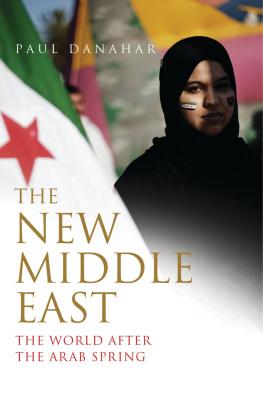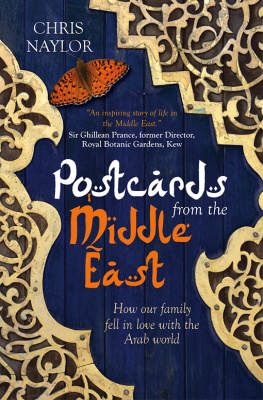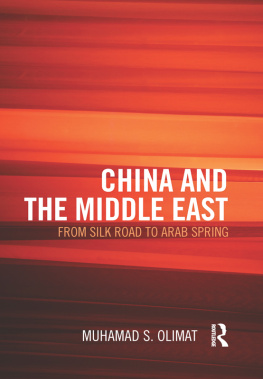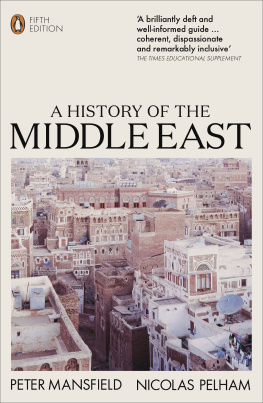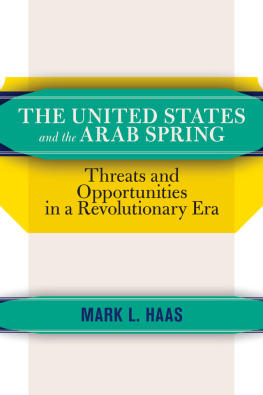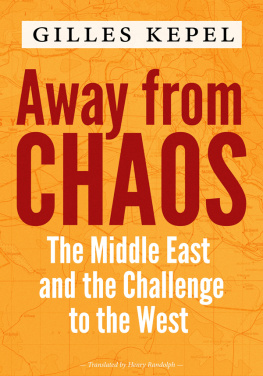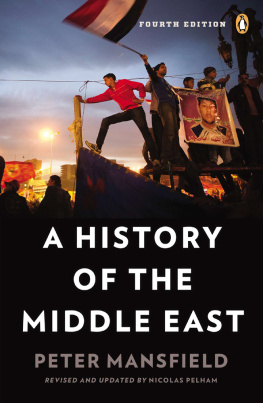I want to thank and pay tribute to the many, many people who made time to talk to me throughout the Arab Spring revolutions and the war in Iraq, periods that were for them often the most traumatic of their lives. Huge numbers of people over this last decade risked their own safety to help journalists in the Middle East like myself. It is proof that war and conflict often also bring out the best in people.
I carried out most of the interviews in these pages exclusively for this book. The rest, and some of the reportage, are drawn from my reporting on events for the BBC while I was its Middle East Bureau Chief based in Jerusalem between 2010 and 2013 and its Baghdad Bureau Chief during the invasion of Iraq in 2003. When I conducted the interview myself, or I was present when a statement was made, I have not provided a source note to the quote so as not to overly disrupt the narrative. I have changed the names of some of the people I spoke to, particularly in Syria, for their own protection. When I have done that I have listed it in the notes.
The Arab uprisings were remarkable and I was lucky enough to work with some equally remarkable people during them. With me, sharing the incoming fire, the non-alcoholic beers, the rocks, stones and tear gas, the bitter coffee, the sand storms and the endlessly long days were: Rushdi Abu-Alouf, Jeremy Bowen, Richard Colebourn, Darren Conway, Lyse Doucet, Wyre Davies, Jon Donnison, Ian Druce, Tim Facey, Gabriel Gatehouse, Jonny Hallam, Andrew Sarge Herbert, Raouf Ibrahim, Jimmy Michael, Ian Pannell, Hamada Abu Qammar, Ghadi Sary, John Simpson, Cara Swift and Paul Wood.
Along with sharing the above experiences during the revolutions a number of friends and colleagues also gave me their time and advice while I was writing this book. Lina Sinjab in Damascus was kind enough to read the section on Syria and offer wise words, as was the equally brave Rana Jawad, the BBCs correspondent in Tripoli, for the Libya section. I am hugely thankful to them both. Without Gidi Kleiman and Avi Halfon it would have been impossible to get access to the people and stories I did for the sections of the book dealing with Israel. Gidi also read several chapters for me, including the ones dealing with Israel and the conflict with the Palestinians, as did Jeannie Assad. Yolande Knell read several chapters and offered much helpful advice for which I am very grateful. Thank you to Kevin Connolly who was kind enough to read the whole book and offer me his insights. The brilliant Angy Ghannam was my invaluable guide on the ground in Cairo as I researched this book, and she fact-checked the Egypt sections for me. However, if there are any errors in this book then they are mine alone. Almost everywhere I went during the fighting and upheaval in the region I had Youssef Shomali alongside me. He is a living legend on the West Bank and a force of nature everywhere else, as is Kevin Sweeney who is, quite simply, the bravest man I know.
BBC News is packed with brilliant, creative journalists many of whom do not get any where near the credit owed to them because it is not their face or voice on the airwaves. Many of the best work for the Newsgathering operation in London and Id like to thank them all for their help over the years. Id particularly like to thank the following past and present colleagues for their advice and support during my time in the field: Andrew Roy, Andrew Whitehead, Anna Williams, Ben Blackmore, Caroline Howie, Chris Booth, Fran Unsworth, Joanne Cayford, Jonathan Baker, Jonathan Chapman, Jonathan Paterson, Kate Riley, Malcolm Balen, Malcolm Downing, Mark James, Mark Tyrrell, Paul Greeves, Sarah Ward-Lilley, Sarah Whitehead, Simon Marr and Tarik Kafala. Id like to thank Jon Williams who was, until recently, my Foreign Editor, but more importantly has been a good friend stretching back to our time decades ago in local TV.
I would not have got my start in journalism via BBC local radio if it had not been for Liz Meech, Graham Henderson and Mike Cartwright. I thank you all.
I have been lucky enough to spend more than a decade living and working around the globe. Along the way I have been even luckier to have been able to share that time with the following people, all of whom are good friends and brilliant in their respective fields: Ali Faisal Zaidi, Andrew Kilrain, Annie Phrommayon, Bilal Sarwary, Daniel Lak, Dylan Nalid, Fred Scott, Karishma Vaswani, Jin Ni, Joe Phua, Nick Bryant, Sanjay Ganguly, and Zaffar Abbas.
Id also like to thank in a similar vein: Alice Budisatrijo, Alex and Sarah Spillius, Allan Little, Andrew Harding, Anthia Wan, Barbara Plett, Bernice Poetiray, Colin Hancock, DanDan Chen, Duncan Stone, Fergal Keane, Jacky Martens, Jennifer Pak, Jo Floto, Jone Chang, Kim Ghattas, Mark Doyle, Martin Turner, Mike Wooldridge, Milton Nkosi, Moska Najib, Navdip Dhariwal, Peter Beaumont, Peter Emmerson, Ravi Lekhi, Sana Abdeljalil, Sanjoy Majumda, Shilpa Kannan, Sanjeev Srivastava, Soutik Biswas, Subodh Sen, Tony Parker and Vinod Mehta.
I want to say thank you to Christine Yu, Niraj Nirash, Mr Li, Mr Madan, Linda Miranda and Landrain Nazareth for looking after my family for the weeks, which over time added up to many months, I was away on stories.
I especially want to thank Jason Burke, who is a good mate and a fellow traveller in some of the less comfortable places in the world and who kindly shared his experience of writing books and offered advice to get me started. Im grateful to have had my friend Rageh Omaar alongside me during some of the most amazing experiences of my working life. Id like to thank Mark Nicholson for his support and friendship, forged over cold beers during long hot Delhi evenings.
Bearded Bob, David Brown, Debbie Durrant, Emily Crossland, Eric Nelson, Paul Blackler, and Richard Mills are my oldest friends whom Ive known since the days when none of us had any idea where we were going.
There are a few people without whom there would have been nothing to read and so I offer them my sincere thanks. My agent Karolina Sutton is the reason I got to write this book. Without her clarity and determination it would have remained an unfulfilled ambition. Im very grateful to her. I want to thank my Editor at Bloomsbury, Bill Swainson, for his belief in the book and for his invaluable help and guidance along the way. Anna Simpson, also at Bloomsbury, worked through my constant updates and tweaks right up to the moment it went to print. Owen Bennett-Jones is one of the finest journalists I have had the privilege to call a friend. He read through every stage of the manuscript and helped me shape it into what it eventually became.
I want to thank Nirmal and Suguna for the love and support they gave our family while we were in India and I apologise for taking their daughter and their only grandchildren off around the world and out of reach. I offer the same thanks and a similar apology to Meghna for denying her time with her only nephews.
My family in England have hardly seen me for more than a decade. I apologise to Marcy, Ella, Lois, Iza, Beau, Gene and Riley for being the perpetually absent uncle. I hope when you are older youll read this book and understand what I was up to. I am grateful for the love of my baby sister Kathryn who did everything she could to keep me a constant presence in her childrens lives, as did my sister Amanda with hers. I love and miss you both. My greatest regret is that my Poppa, Harry Bird, along with my Aunts Minnie and Dolly never saw me achieve so many of the things denied to them and their generation.
I escaped that trap because of the love and sacrifice of my parents Allan and Valerie Danahar. I thank and love you both. Again, Im sorry for keeping two of your grandsons on a different time zone for their entire lives.
My boys, Zayn and Aden, have brought me more joy and laughter than I could ever have imagined. I want to thank them for the wonderful surprises they made for me upon my return from the many trips I made away from home. I love you Zayn. I love you Aden.
Next page
